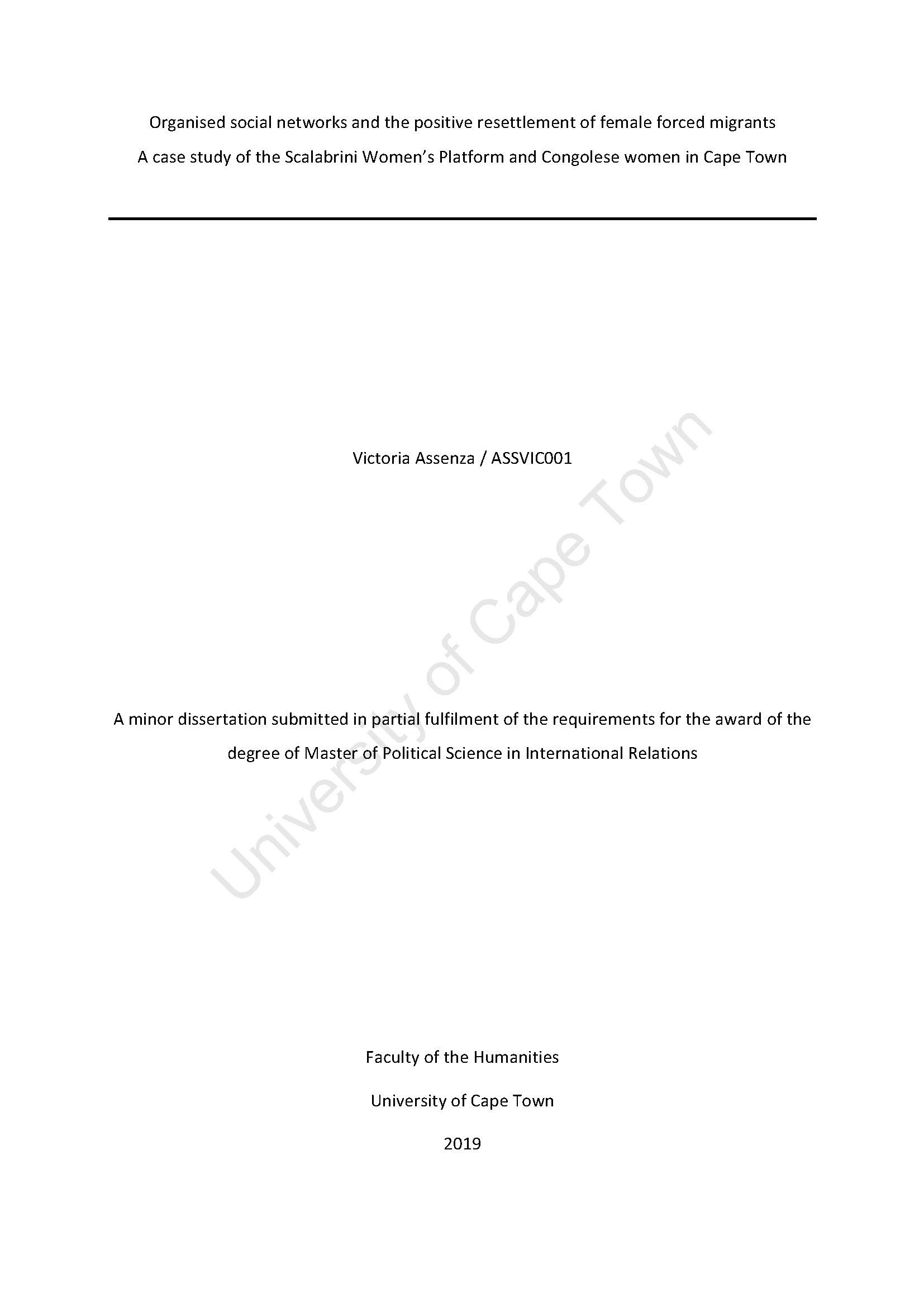– Master Thesis –
This research assesses the potential of organised social networks to improve the resettlement of female forced migrants in their destination country. It looks more specifically at the impact of the Scalabrini women’s platform on women from the Democratic Republic of Congo’s (DRC) experience in the city of Cape Town. In the context of the DRC, forced migration includes movements caused by conflict, political instability and economic crises while post-apartheid South Africa offers peace, democracy and a stable economy in the Southern African region, although it is pervaded by a strong xenophobic sentiment towards black African foreigners. In addition to xenophobia and racism that linger in South Africa, women face gender-based inequalities and the barrier of language, placing them in a vulnerable position and exposing them to abuse and isolation.
Organised social networks are understood as a source of social capital that improves lifestyle by limiting everyday challenges. Using the theory of embeddedness and immigration (Portes and Sensenbrenner, 1993), the Scalabrini women’s platform offers enforceable trust which provides economic resources in the form of knowledge and networks. Data was gathered through a review of the literature and semi-structured interviews with active members of the platform.
This research finds that the creation of a gender-specific network, outside of the community and mainly within immigrants, indeed works towards building enforceable trust with limited negative effects, but challenges remain. It further identifies the link between unemployment and documentation as the main obstacle to women’s positive resettlement. The platform tackles the challenge of unemployment linked to documentation by providing professional skills and contacts. They are powerful tools to avoid the restricted access to formal employment by contributing to capacity-building and increasing chances of selfemployment. Organised social networks do contribute to the positive resettlement of Congolese women in Cape Town, but exclusion and isolation remain. The creation of weak ties with the broader South African society appears as essential in response to the xenophobic discourse of the State and the media, especially in the absence of inclusive immigration laws.

